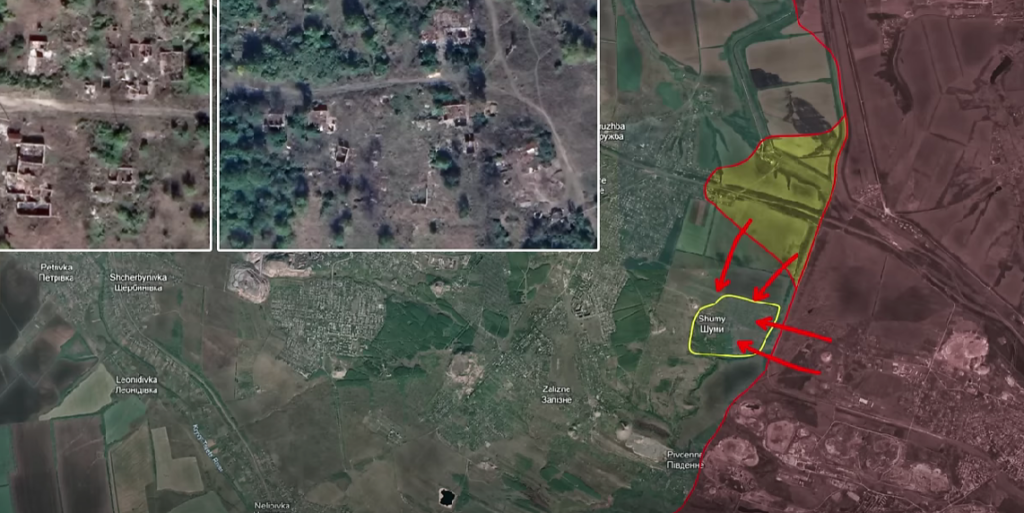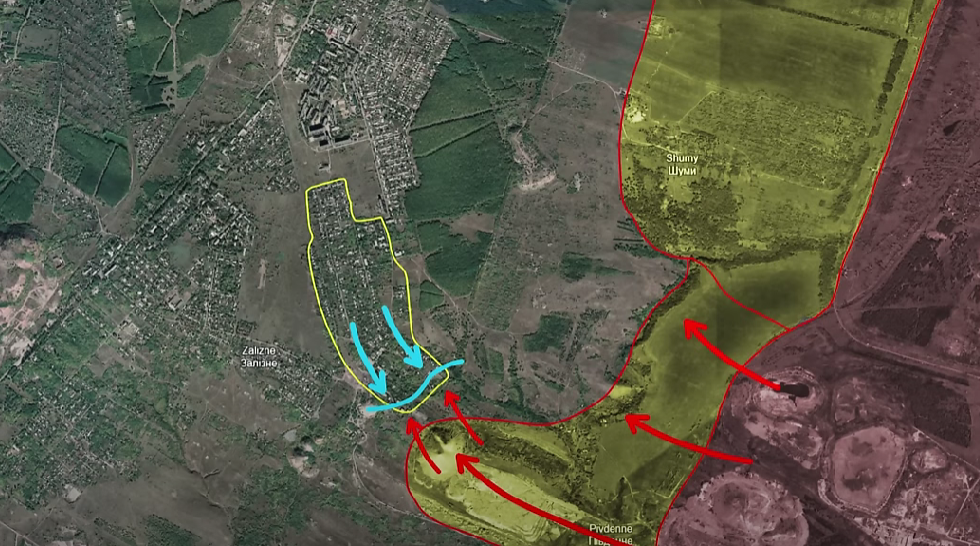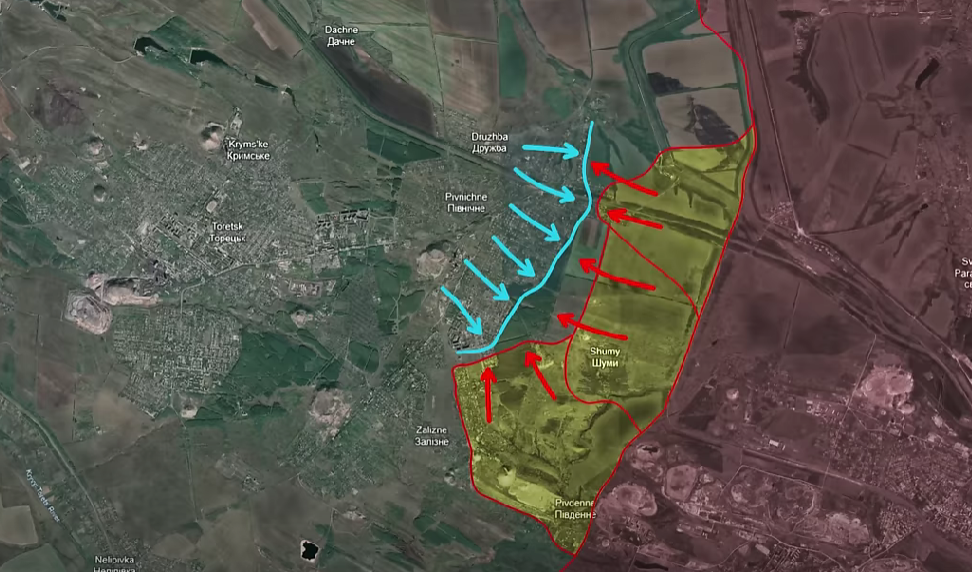Frontline report: Russian forces exploit Ukrainian brigade rotation, capture stronghold
A botched brigade rotation on 6 July allowed Russian forces to seize a Ukrainian stronghold near Toretsk, using abandoned pipes to infiltrate the position.


Day 865: 6 July
On 6 July, the most important updates come from the Toretsk direction.
Here, Russians have taken advantage of a botched Ukrainian brigade rotation and took control of a Ukrainian stronghold by sneaking through abandoned pipes.

This direction has been relatively static since the start of the Russian invasion. Deeply layered Ukrainian fortifications here, stemming from the war in the Donbas, proved insurmountable for Russian forces, as they were not able to break through in the initial stages of the war. As such, this direction did not see any large Russian offensives and was categorized as a calmer portion of the front.
Because of this, a Ukrainian commander decided to rotate the battle-worn Ukrainian 41st mechanized brigade from the Chasiv-Yar direction to here and send the fresher 24th motorized brigade to reinforce the fighting to the north. Lower-level Ukrainian commanders warned of the dangers of such a simultaneous rotation, stating it would undoubtedly lead to positional losses. Still, a certain Ukrainian commander, later replaced by Zelensky due to his failures, went ahead with the plan anyway.
By good reconnaissance or leaked intel, Russians caught on to the Ukrainian rotation. Before the newly arrived Ukrainian soldiers were able to familiarize themselves with their new location and set up an organized defense, Russians unleashed a massive artillery barrage in preparation for their coming assault. Russians launched attacks from two vectors on the settlement of Pivnichne from the north and south to catch Ukrainians by surprise with a sudden pincer maneuver.

In the northern axis of attack, Russians used an abandoned pipe that ran from Mayorsk to the water pump station, which Ukrainians had transformed into a stronghold. Russians used this pipe to move elite stormtroopers directly into the fortified position, surprising Ukrainian defenders and leading to the Russian capture of this position.
For their next step, Russians needed to act quickly; they used their forces here to exert fire control over the tree line and railway running into the settlement, clearing the way for Russian assault groups to enter the first houses of Pivnichne. Ukrainians, still suffering from the surprise, were forced to pull back to prepared fortified positions inside the town, which they used to halt the Russian advance effectively. Russians realized that to capitalize on their recent gains, they had to secure their flanks to deter Ukrainians from counterattacking in their rear and open up more directions of attack on Pivnichne.
Russians started launching numerous attacks on the Dacha settlement of Shumy. Shumy is made up of well-spaced-out houses that had been reduced to ruins due to the decade of fighting in the area, making it relatively hard to defend. Ukrainian defenders still put up stiff resistance here, delaying the Russian advance enough to allow other units to organize the defense in the town.

On their southern axis of attack, Russian progress was severely falling behind, and despite having the element of surprise, Russian forces could not force a breakthrough. They were held up by Ukrainian defenses on the mine waste heaps, fortified positions in the houses, and the overall difficult terrain. After heavy fighting, Russians could take control of the Terrikon but continued to struggle in their advance through the suburbs in the south.

Russians used their elevated position on the Terrikon, however, to designate with lasers Ukrainian fortified positions they could not take with their infantry outright and bombed them with KAB laser-guided munitions. With this tactic, Russians could slowly advance, as Ukrainians set up a defense in the high-rise district in Pivnichne. Besides the regular defensive advantages and fire control Ukrainians can exert over the surrounding area, the frontal buildings shield the buildings behind them from Russian laser designations, forcing Russians back to blindly bombing the area.
Geolocated footage shows how Russians intensely bombed the area with artillery and FAB glide bombs. This footage also simultaneously disproves Russian claims of having entered the district, as glide bombs are too inaccurate and would have a high chance of landing on friendly soldiers.
With the Russian frontline now leveled out, Russians started launching full-frontal assaults on the town of Pivnichne. Despite Russians entering some buildings, Ukrainians successfully defended against all of these Russian attacks.

Ukrainians also shared footage of them destroying any buildings that Russians managed to enter, with anti-tank mines dropped from heavy Vampire Octocopter drones.
The Institute for the Study of War stated that after the initial surprise wore off, all Russian gains came slowly over nearly three weeks of intense fighting. Russians have also not performed large mechanized assaults in this direction, using purely infantry, FPV drones, artillery, and air strikes to accomplish their goals.
Furthermore, Russians have not yet committed large reserves in this direction, severely limiting the time Russians can sustain their assault.
Despite the initial surprise assault being well-executed, the lack of overwhelming assaults and reserves committed by Russian forces means this Russian operation was largely opportunistic. After the initial shock wore off, Russians could not overrun Ukrainian defenses due to stiff Ukrainian resistance in the outer settlements, as Ukrainians were able to withdraw back to their fortifications in Pivnichne.
Even Russian analysts were careful in their optimism, stating that it would be an exaggeration to call this a breakthrough, as Ukrainians are now lying in wait, comfortably in their strongholds.
In our daily frontline report, we pair up with the military blogger Reporting from Ukraine to keep you informed about what is happening on the battlefield in the Russo-Ukrainian war.
Read also:



